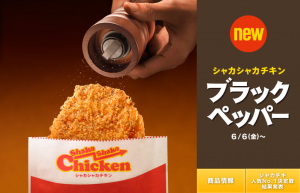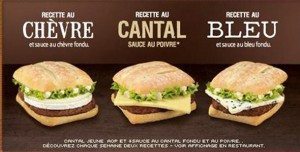http://www.businessinsider.com/windows-users-plan-to-switch-to-apple-2012-11?utm_source=Pulse&utm_medium=App&utm_campaign=partner&utm_medium=referral&utm_source=pulsenews
Month: November 2012
An interesting discussion in our information technology lecture led to the topic of using social networking as market research. In fact, Facebook, easily one of the highest traffic sites on the worldwide web, recently disappointed when its shares did not meet the IPO. However, perhaps companies are relying too much on social media for advertising. Is it a veritable source of accurate research? Should companies keep paying the costs of expensive interactive, and even IP-address customized, advertisements?
Facebook seems to be the ideal breeding ground for this. Internally, algorithms are already written which determine ‘suggested likes’ and ‘top friends’ based on a user’s activity – and the suggestions are scarily accurate. However, there is one flaw in using social networking as the basis of market research – in that the Facebook news feed is not where most people get their information and daily news – at least, the demographic old enough to hold real market power over goods and services. Similarly, many users do not take the time to ‘like’ pages they, in fact do like in real life. Additionally, one must consider inactive accounts, multiple accounts, spam accounts, and such. This sort of research is skewed by the contingency theory, and though a popular investment recently, is likely not the most accurate.
An interesting article which shares my view can be found here.
The title in itself raises a lot of questions. Huh? Why hire a failure? HomeAway co-founder Bryan Sharples, who is interviewed by Jessica Stillman, states that it is a huge benefit to his company.
Taking a look into organizational behaviour and basic decision-making, I can suggest many reasons why Sharples may look to employ ‘failures’. We discussed overconfidence and confirmation biases, which occur when the decision maker is far too optimistic and focused on their intended outcome. Thus, those who have made major judgement issues in investments will be more likely to exercise caution and consider many alternatives before acting – a character trait which is extremely important in investment banking.
Perhaps Sharples sympathizes with these potential employees as well. He, himself, had lost over a million dollars in less than 3 hours when entering entrepreneurship. A study into organizational behaviour suggests that managers often hire similar employees, naturally, to decrease cognitive dissonance and increase employee satisfaction in the workplace.
Do you often wonder whether the products sold under the pretence of charity actually have some benefits? When I was in high school, I was eager to get involved but I was never sure which organization would be a veritable cause. Many charities attract young teenagers by offering gift levels once a certain amount of money is met. For example, the Heart and Stroke Foundation asks children to collect pledges – and at each pledge level, they are rewarded with various items – a jump rope, an exercise ball, a bag, and such.
YUDA bands recently caught my attention. Not only are the bands aesthetically appealing and made from leather, therefore appealing to the quality value of the consumers’ mind as I have discussed in a previous post, but they were also handmade by children from Guatemala. These bands sell for $7-10 each and all proceeds go towards childrens’ education.
Their mission statement: To create jobs, promote education, and increase global awareness.
But how are they selling these bands? Door-to-door salespeople? No – YUDA bands has cleverly targeted the widest market – teenagers. Programs are organized where ‘student leaders’ in various high schools throughout North America independently promote YUDA bands within their own social groups.
YUDA bands are shipped to high schools. There, student leaders organize their sales and promotion. Teen psychology comes into play – these bands are seen as trendy and connote global awareness. In return, YUDA bands are also creating leadership opportunities for these students. A scholarship program is even offered to outstanding leaders in North American high schools for promoting YUDA bands.
How is it that YUDA bands has so successfully tapped into all the needs and wants of many different segments? Find out more on their website.
Another blog posting which sparked my interest was Dora Leung‘s post on the success of McDonald’s. Sure, in North America, McDonald’s is considered one of the most simple fast food chains; however, in Asian countries, such as Hong Kong, where I am from, McDonald’s can be seen as a restaurant (there is even a “McCafe” coffeehouse portion of the establishment).
What I gathered from Dora’s post was that McDonald’s maintains a strong brand name by doing exactly the opposite of what one might think – fragmenting its value propositions among various geographical areas. It seems to me that McDonald’s has figured it out – instead of pushing the brand, the idea, onto consumers, why not adjust the brand for the consumers? For example, in Japan, where the niche of cheap, fast food has already been filled by convenience store buns and street side vendors, from a quick look at a SWOT diagram, McDonalds certainly would not have found this industry attractive. However, by creating new menu items catered towards another type of market segment, McDonalds has claimed success in Japan. The same goes for many other countries – Dora gives the example of the ‘Fromage Royale’ in France, adjusted from the ‘Quarter Pounder’ to Europe’s ‘non-empirical system’. This forward thinking and innovation is exactly what others, and myself, likely undermine from day-to-day, dismissing McDonald’s as ‘another fast food chain’. All in all, due to great strategies and tactics, McDonald’s has even become extremely cost efficient, which is structurally difficult for a franchise which aims to target so many different niches internationally.
I guess everyone really is loving it.
My fellow colleague Anna Zhao has recently perked my interest on the true definition of quality. After discussing brand and value propositioning, as well as managerial accounting, in our lectures, I now wonder what truly constitutes great quality. As Anna writes, quality can be anything from a sleek design, brand propositioning, to simply cost management – that is, ‘where quality has not been compromised for price’!
I fully agree with her statements, and would also like to take it one step further – after discussing explicit and implicit costs, I wondered why both would be taken into account in such a factor in managerial accounting. Surely, one can’t quantify the implicit cost of better allocated labour?
Take, for example, an entrepreneur who starts his own handbag line. The value of his time spent could be better spent invested in other venture. In addition, he does not pay himself for the cost of his time, labour, and innovation. I believe this speaks to quality, as well – the image of the management and the company. Surely, this must mean something to the customers who choose to buy particular brands.
It seems that customers are more inclined to spend more money on handmade items and crafts, rather than generic factory produced items from the supermarket. (For example – street market items and handmade jewellery sell well). Is this a paradox of value? Why do companies advertise products as “hand-made” as much as they can? I believe the personal touch is also a contributing factor to quality, and my colleague has otherwise hit on many great points of this topic.




